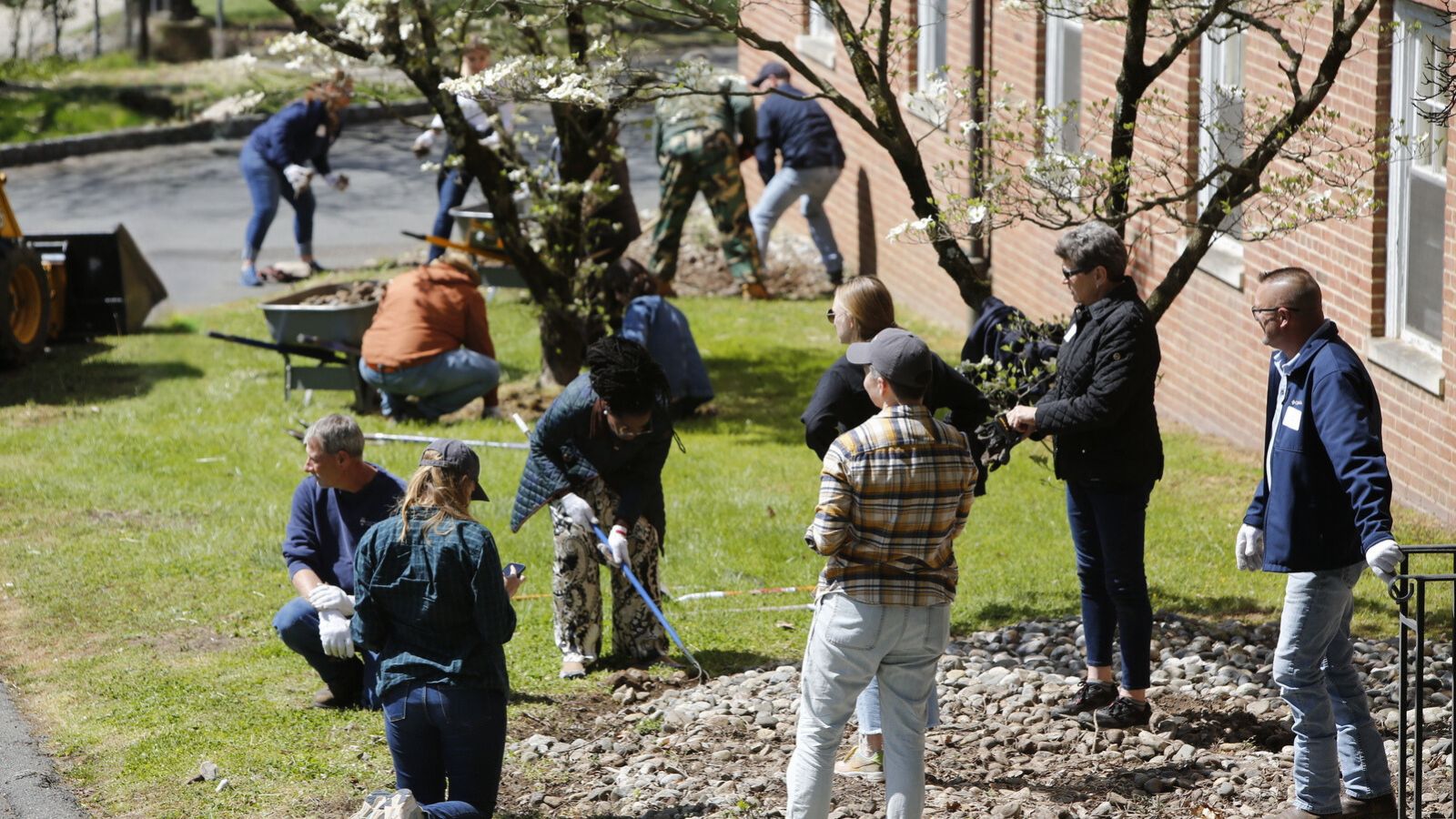
Sustainability at Princeton Seminary
Home About Mission & Vision Sustainability at Princeton Seminary
Sustainability at Princeton Theological Seminary reflects our mission to prepare faith leaders who are deeply attuned to the well-being of all creation. The Seminary’s initiatives emphasize ecological responsibility and the cultivation of a global learning community.
By integrating sustainability into our practices, the Seminary seeks to live out our calling to serve Christ’s mission in the world, embodying values that promote harmony between humanity and the environment.
Our current sustainability efforts include:
- Compost Program: The Farminary diverts around 1,000 lbs of compostable materials weekly from dining halls and campus buildings, turning waste into organic fertilizer through a comprehensive composting initiative.
- Farm-to-Table Integration: The Farminary supplies dining services with fresh produce, including all eggs and approximately 1,000 lbs of chicken annually, ensuring a direct farm-to-table connection on campus.
- Regenerative Agriculture: The Farminary employs regenerative agriculture practices, focusing on soil health and sustainability, reflecting our commitment to ecological stewardship.
- Local Food Procurement: Dining services strive to source the majority of food within a 120-mile radius, supporting local farmers and reducing the Seminary’s carbon footprint.
- Energy-Efficient IT Infrastructure: By transitioning to cloud-based services and upgrading network equipment, we’ve saved enough energy to power 46 residential homes, highlighting our commitment to reducing IT-related energy consumption.
- Sustainable IT Vendor Practices: New IT vendors must demonstrate at least 20% renewable energy use, aligning with our broader sustainability goals and ensuring responsible partnerships.
- Paper Conservation: The implementation of the PaperCut platform has led to the reduction of campus printers, raising awareness about paper usage and promoting responsible consumption.
- LED Lighting Upgrades: Campus-wide LED lighting upgrades have reduced energy consumption from 21 million watts to 7 million watts annually, significantly lowering our environmental impact.
- 100% Renewable Electricity: Our entire campus is powered by 100% renewable energy, with ongoing efforts to further reduce electricity use, including after-hours light shut-offs by Public Safety and custodial teams.
- Sustainable Transportation: Public Safety has reduced the use of gas-powered vehicles, favoring walking and biking for patrols, leading to a reduction of approximately 6,500 hours of fuel use annually.
- Stormwater Management at Princeton Theological Seminary: At Princeton Theological Seminary, we are committed to intentional and sustainable practices that reduce stormwater runoff and enhance our campus environment. Over the past several years, we have undertaken significant initiatives to manage and mitigate stormwater effectively:
- Rain Gardens: The Seminary constructed rain gardens near the library capable of retaining up to 10,000 gallons of stormwater, reducing runoff and promoting natural water filtration.
- Permeable Parking Lots: The parking lots adjacent to the library were designed with permeable surfaces, enabling them to absorb and manage over 100,000 gallons of stormwater, reducing strain on municipal systems during heavy rainfall.
- Retention Systems: At Brown Hall, we installed underground retention tanks with a capacity to retain over 50,000 gallons of water, further preventing excessive runoff and erosion.
- Sustainable Landscaping: Our landscape practices have been transformed to promote water conservation. By prioritizing native plant installations throughout campus, we have reduced irrigation needs while supporting local ecosystems and biodiversity.





